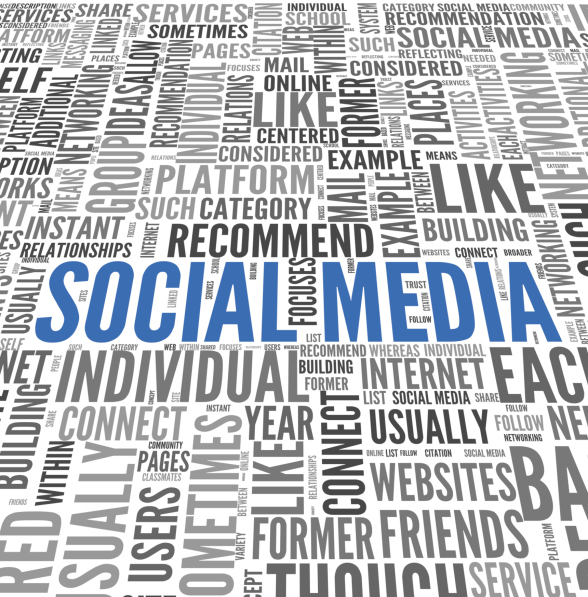
Susannah Fox and Kevin Pho, M.D., two of the nation’s leading figures in social media and medicine, visited Einstein on October 18. The audience—including me—will never be the same.
Providing hard data about the extent of social media use regarding healthcare, Ms. Fox made a strong case for medical professionals to meet their patients where they are. Dr. Pho acknowledged that while there are legitimate professionalism concerns about social media use by physicians, they can be handled, and the benefits that can accrue to patients outweigh the risks. I went home, drafted this blog post and signed up to follow both speakers on Twitter. Then I reflected on my own social media trajectory.
A number of years ago, when my kids were still in high school, I asked if I could “friend” them on Facebook. They looked at me with disdain and didn’t bother to reply. Now mature twenty-somethings, they have allowed me in—admittedly using high-privacy settings so that I can view only certain posts they generate. I think they felt sorry for me, realizing that I was working on a project related to social media and I didn’t know much about it.
The project—“Social Media and Medical Professionalism: Perfect Match or Perfect Storm?”—is supported by a grant from the Institute of Medicine as a Profession and the Josiah Macy Jr. Foundation. It developed from the recognition that the emergence of social media has altered every aspect of society, and medicine is no exception. Doctors tweet to get advice about challenging cases. Patients blog about their experiences with illnesses. And medical students…well, we weren’t entirely sure how medical students used social media, although they seemed constantly engaged. We hoped they used social media with appropriate caution.
Social media seemed foreign at first. But as with any complex project, if you break it down into pieces and assemble the right group of bright, hardworking people, you can make progress quickly. Our seasoned steering committee of medical educators and social media experts consists of Marti Grayson, Felise Milan, Patrick Herron, Dan Myers, Mimi McEvoy, Jacki Weingarten, Chris Coyle, Paul Moniz and David Flores.
The first task was to educate our faculty in order to bridge the “digital divide,” wherein the students knew more than their teachers. Building on a successful 2012 faculty event called Davidoff Education Day that featured social media experts Katherine Chretien and Kent Bottles, we held several more educational events.
In September 2012, we hosted David Stern, M.D., an expert in medical professionalism from Mount Sinai, and Allison H. Fine, an author, speaker and blogger on social media issues. They joined members of Einstein’s faculty to talk about professionalism in the connected age and how best to teach medical students about social media. A workshop focused on challenging patient scenarios involving social media followed the lectures. This workshop was presented at the International Conference on Communication in Healthcare on September 30 in Montreal.
After hearing concerns about how social media use could adversely affect a physician’s professional image, we wanted to learn how it could be used in positive ways. So on June 14 this year, Farris Timimi, M.D., medical director of the Mayo Center for Social Media, traveled to Einstein to talk about how healthcare providers can use social media to engage professionally and effectively with patients online in a session called “Health Care Social Media in the Digital Era.”
As our faculty members ramp up their social media expertise, we have begun to conduct some interesting research about how we—as well as our students—use social media at Einstein. We presented preliminary results at the Research in Medical Education (RIME) meeting in Philadelphia on November 4. We have also introduced social media into the curriculum of three of our preclinical courses. As we enter the second year of the grant, we look forward to engaging our third-year students in a project to determine how our own Bronx patient population uses social media.
The goal is to create additional channels for meaningful connections between doctor and patient and to develop and share content that will improve the patient’s health—a lofty aim, but one that we eagerly aspire to reach.


Comments on this entry are closed.
Never be the same? Really. Is the fundamental experience of the practice of medicine in 2013 fundamentally altered by your single exposure to Fox and Pho … I think not.
The key to adoption of social media by physicians is to align the payment mechanisms to reward that behavior where appropriate. With surveys showing 1 in 3 doctors suffering from symptomatic burnout on any given office day and many working well into the evening hours just to complete their meaningful use documentation requirements on EMR systems designed by IT professionals who have never seen a patient … encouraging physicians to take on the learning curves of facebook, twitter, linked in, Pinterest and what ever social networks will pop up in the years ahead … makes no sense at all UNLESS
– you are paying them for the activity
– AND it is providing a useful service to the patient
The number of fans, likes and shares is meaningless if your doctor hasn’t seen their kids all week. This is a bandwidth and reimbursement issue at its core. Full time clinical doctors don’t have time for this. If they do have the time, I advise them to take a nap and hang with their kids. Until they get paid for tweets and you are providing a meaningful service in that channel … it is all just a distraction from seeing the next patient, IMHO.
My two cents,
Dike
Dike Drummond MD
A Hungarian medical school has been teaching medical students about the proper use of social media for 6 years. The curriculum also includes a gamification based e-learning platform and a Facebook competition. https://thecourse.webicina.com/